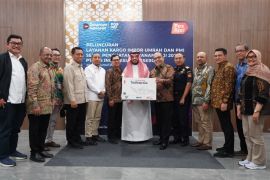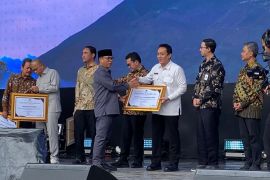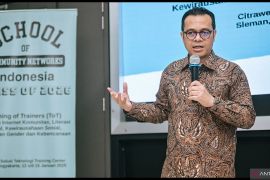Some said it is a breakthrough, but other call it a step backward.
Tax amnesty is no new in the world, although politicians could easily make it a controversy.
Australia, adopted the policy in 2010 and the result was an increase of A$200 million in the state revenues.
A Guardian journalist, Van Badham, said on 21 January 2014, billions of U.S. dollar belonging to rich Australians were stashed in a number of tax free jurisdictions in the world.
However, Van Badham noted tax amnesty policy proved no better than international cooperation in seeking a method of collecting data and share information among countries including with those tightly protecting bank secrets like Switzerland.
He said international cooperation had contributed to the success of the Australian Tax Agency to collect more than A$1.7 billion in the period of 2012-2013, much larger than the A$200 million result of tax amnesty policy.
Van Badham said tax amnesty policy is tantamount to the state favoring the rich on the pretext that the policy would benefit the nation.
In Indonesia,lawmaker Ecky Awal Mucharam of the Commission XI of the House of Representatives,said the big scheme of tax amnesty would not be effective without tax structural reform.
"Without structural reform in the taxation sector tax amnesty would not be effective," the lawmaker of the Prosperous Justice faction said.
Ecky Awal said tax amnesty policy without strong taxation institution has failed in a number of other countries.
Success is rare in tax amnesty, he said, adding the success recorded by few countries was attributable more to their success in strengthening their tax institution, he said.
"We have taxation problem structurally such as with the low tax ratio and low obedience of tax payers and weak tax judiciary. As a result action against tax fraud is weak," he said.
Therefore , those negative factors need to be straightened out first through reform of taxation institutions, he added.
Apart from strengthening the taxation institution, the taxation regulation also needs strengthening such as through revision of the tax law, he said.
Earlier, a Coalition of Non Governmental Organization (LSM), grouped in Forum Pajak Berkeadilan, asked the government to forget about the tax amnesty plan.
"Cancel the plan to give amnesty to super rich tax payers," coordinator of Forum Pajak Berkeadilan Ah Maftuchan said.
Ah Maftuchan, who is also executive director of Perkumpulan Prakarsa, said tax amnesty would be a step backward in law enforcement against tax fraud and money laundering.
The tax amnesty policy would lower tax obedience of the tax payers and would weaken the authority of the government in facing super rich and corporate tax payers, he said.
In addition it would hurt the feelings of small and obedient tax payers, he said.
Forum Pajak Berkeadilan groups a number of non governmental organizations including Perkumpulan Prakarsa, Seknas PWYP Indonesia, International NGO for Indonesia Development (Infid), Transparency International Indonesia (TII), Asppuk, The Habibie Center, Indonesia Corruption Watch (ICW), Indonesia for Global Justice (IGJ), Indonesian Human Rights Committee for Social Justice (IHRCSJ),Indonesian Legal Round Table (OLR), Perhimpunan Pengembangan Pesantren dan Masyarakat (P3&M)), Yappika and Yayasan Layanan Konsumen Indonesia (YLKI).
Unfair Policy
The Confederation of Indonesian Labor Unions(KSPI) said the plan to draw funds of Indonesian rich men parked abroad through tax amnesty was an unfair policy.
"We strongly reject the policy as it is not fair. When workers are paid low , those not paying tax are even offered an amnesty," KSPI president Said Iqbal said after a news conference here earlier this month.
Iqbal said there was evidence and guarantee that amnesty would make fraudulent tax payers honest and obedient.
"We are wondering where the initiative has come from -- the people or those having questionable backgrounds," he queried.
He linked the tax amnesty bill to the leaked Panama Papers, saying the bill was rushed to the Parliament to save certain people from being the target of law enforcement.
Panama Papers are secret documents on financial scandals including tax and banking fraud involving politicians and corporations all over the world including Indonesia.
"When government leaders abroad tender resignation over the alleged scandal, we even rush the tax amnesty bill to the parliament for approval," he said.
The labor union leader threatened to organize massive protest on the labor day on May 1 if the government decided to go ahead with the tax amnesty plan.
Meanwhile, the Indonesian Association of Business People (Apindo) said tax amnesty should also target underground economy .
"Indonesia should be able to have a tax ratio of 16 percent but so far the ratio has hovered only around 11-12 percent because of the rampant underground economy," Prijo Handojo, Apindo chairman for tax division, said.
Prijo said tax amnesty should be offered not only to rich people parking their money abroad, but also to those operating in illegal market in the country.
He said Indonesia has around five million corporate tax payers, but only around 2 million of them registered at the Taxation Directorate General and only 500 regularly pay taxes.
"There are 4.5 million business people paying no tax at all, and there are 100 million people that have to pay tax. That is about 98 percent of the tax revenue target," he said.
Executive Director of Center for Indonesia Taxation Analysis (CITA) Yustinus Prastowo said orientation of tax amnesty also needs to be integrated with informal economy.
According to the World Bank, informal economy such as small and medium scale enterprises (UKM) contributed around 18 percent to the countrys Gross Domestic Product (GDP).
He said UKMs should also gain from the policy through access to incentives offered the government.
"They should also enjoy any liquidity policy and cut interest rate. Tax amnesty is not a target but a facility to develop a new economy," Yustinus said.
Apply to all
The Association of Young Indonesian Business People (Hipmi) said it would agree with the tax amnesty policy if it was fairly applied in a wider coverage.
"Hipmi hopes that tax amnesty would be transparent and inclusive applied to all segments of tax payers including UKM," chairman of the Central Executive Board of HIPMI Bahlil Lahadalia .
Bahlil said high level of transparency and inclusiveness in the implementation of tax amnesty would give legal certainty and encourage tax payment.
He said exclusive implementation of tax amnesty would draw waves of rejections and would potentially make good tax payers reluctant to meet their obligation.
Many people would accuse the government of being unfair for showing favor for fraudulent rich people, he said.
"Those who have been loyal in paying taxes must not feel that their loyalty was not duly appreciated and that they have been excluded from the opportunity to enjoy facility provided by the government," he said.
HIPMIs tax center chairman Ajib Hamdani said Indonesian economy had grown sluggishly on low liquidity.
Low liquidity was partly attributable to huge funds belonging to Indonesian business tycoons parked abroad, Ajib said.
The government has proposed tax amnesty bill to the House of Representative but the House again shelved debate on the bill as "consultation is still needed with the government."
The factions were still divided over whether to approve or reject the bill at all.
Deputy House Speaker Fadli Zon said no followup step could be taken on the tax amnesty bill before the consultation is concluded.
He said it is important for the House to know the road map of the government related to tax amnesty especially with the leaked documents of law firm Mossac Fonseca of Panama.
An economist, however, said the leaked Panama Papers should gives more reason for the Parliament to approve the tax amnesty bill instead of holding up the process of making it a law.
Dr. Thomas Ola Langodai from the Catholic University Widya Mandira Kupang said the government especially the Parliament should push for immediate implementation of tax amnesty.
The leaked Panama Papers exposed holders of thousands of hidden bank accounts implicating many politicians and business leaders internationally.
Finance Minister Bambang Brodjonegoro said the bill is aimed at repatriating from abroad funds belonging to Indonesians, and to increase tax revenue.
"The tax revenue is highly potential but our tax ratio is low compared to other middle income nations ," the minister said.
He stressed the importance of the bill as there are still many potential tax payers not yet reporting their taxable assets in the country or abroad.
The bill is necessary as the average ratio of obedience of Indonesian tax payers is still relatively low, he said, adding meanwhile, Indonesia still adopts strict rule in bank secrecy, even stricter than countries so far known as tax haven.
He said the average ratio of obedience in Indonesia is 60 percent that there is still 40 percent to be exploited.
Earlier, President Joko Widodo said the government would not depend only on tax amnesty for additional revenues to finance its development programs.
"Tax amnesty or no tax amnesty, we have made a calculation. No dependence on tax amnesty," the president was quoted as saying last month.(*)
Reporter: Muhammad Razi Rahman/A.Saragih
Editor: Heru Purwanto
Copyright © ANTARA 2016











